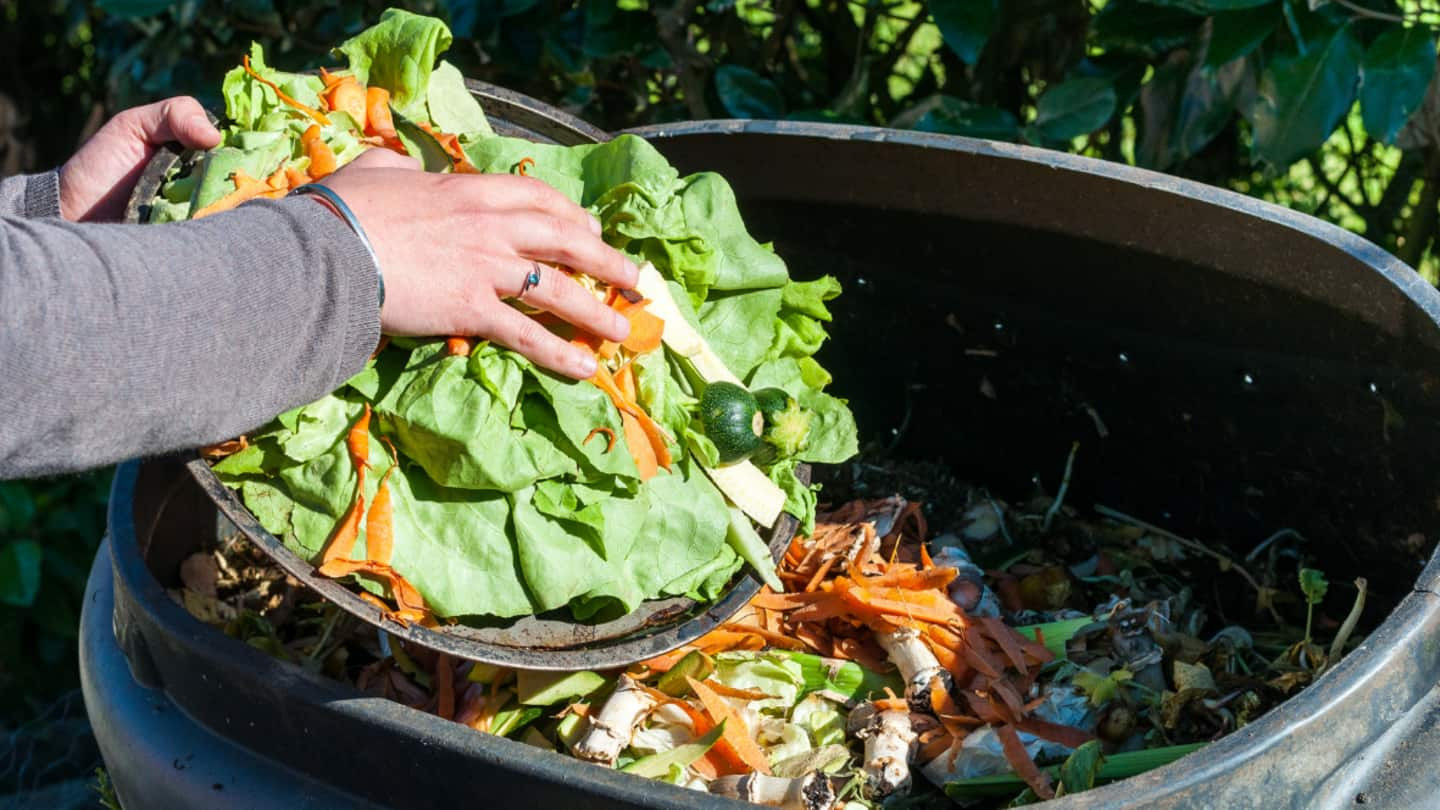
Home Composting 101: Step-by-step guide to begin composting at home
What's the story
Compost is organic material that aids in plant growth. Composts are most often made from our household wastes and hence they are free and easy to make. Further, composting is a simple way to add nutrient-rich ingredients to your soil. Here, we outline the ingredients that you can add to your compost, how to add them to the soil, etc.
Ingredients
Here's what you can and can not add to compost
What you can add: Fruits and vegetables, eggshells, tea bags, shredded newspaper, cardboard, yard trimmings, houseplants, leaves, sawdust, cotton and wool rags, ashes etc. What you should not add: Banana peels, orange rinds, diseased plants, dairy products, fats, oils, meat or fish bones, coal and charcoal ash etc. While adding sawdust or yard waste, make sure that it is evenly distributed to avoid clumping.
Steps
Step-by-step guide to composting
Firstly, select the waste that you want to compost and store them in a container. You can also store away your food scraps in the refrigerator to avoid insects and pests. Next, choose the location of compost. This can either be in your backyard or a compost bin. An empty milk carton will work just fine to act as your compost bin.
Greens and browns
Focus on your greens and browns to make perfect compost
Greens and browns are the main focus when it comes to making good compost. The greens are your food scraps and 'wet' ingredients while the browns are your egg cartons, newspapers, dried leaves etc. While layering your compost, the browns should be placed at the bottom with the greens on the top. The ratio of browns to greens is usually 2:1.
Benefits
These are the benefits of composting
Adding compost to the soil helps in retaining moisture and also reduces plant diseases and pest attacks. Composts are effective and reduce the use for chemical fertilizers. Composts aid in the growth of beneficial bacteria and fungi that lead to the formation of humus, a rich nutrient-filled material. Lastly and most importantly, compost significantly reduces methane emissions and lowers carbon footprints.